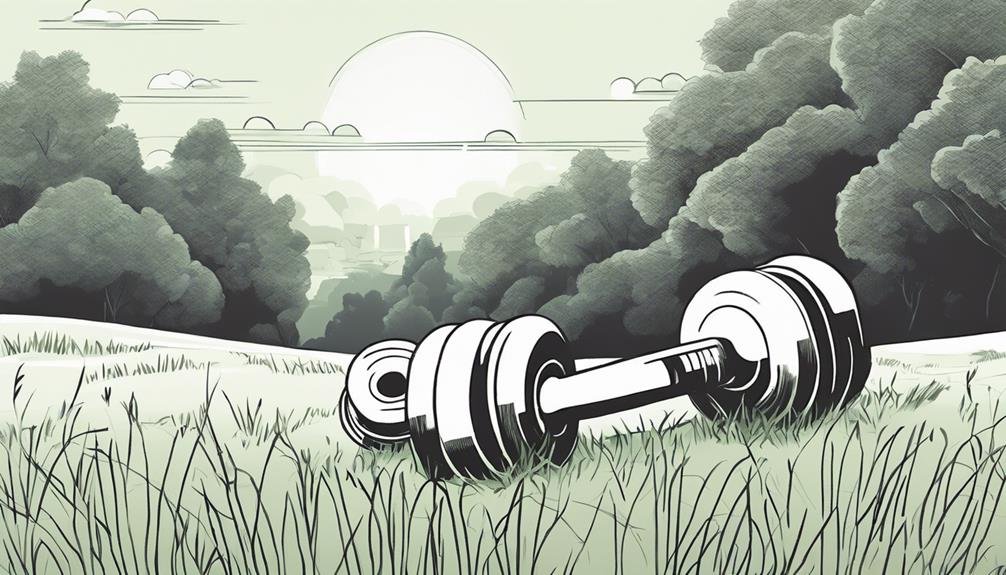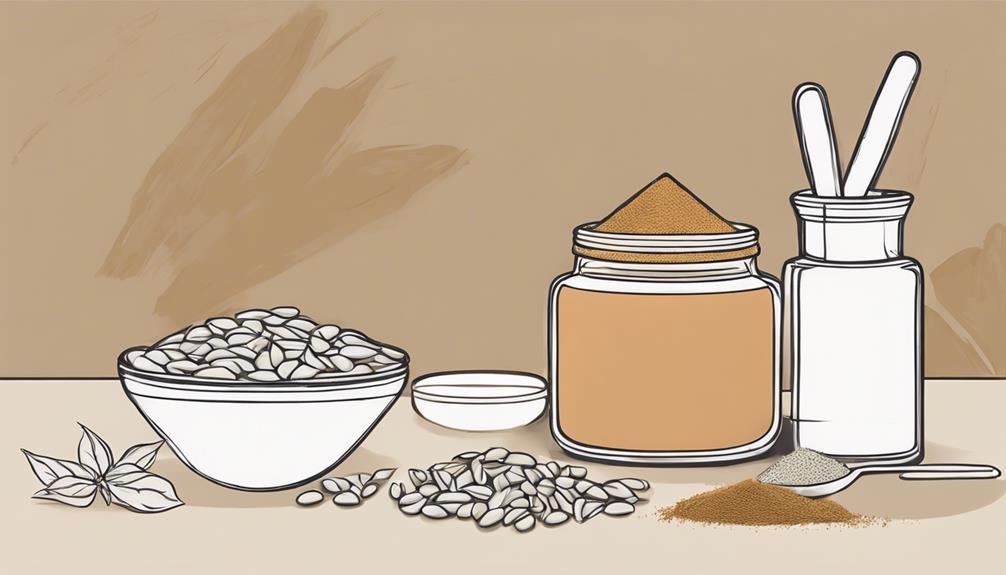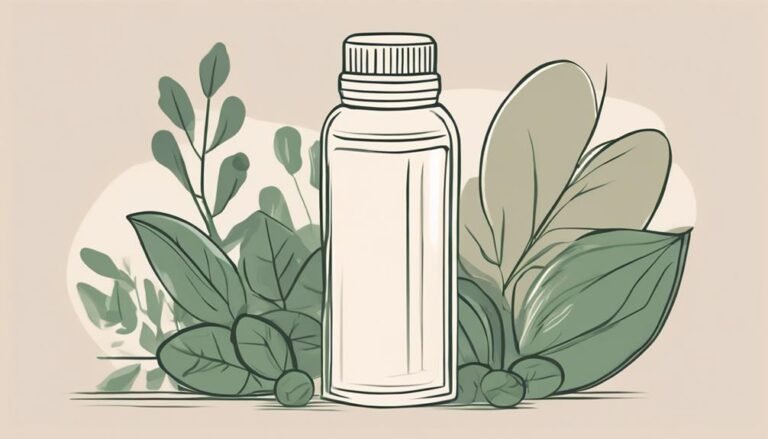Natural Ways to Optimize Male Hormones After 40
To optimize your male hormones after 40, start by focusing on a balanced diet rich in whole foods like lean proteins, healthy fats, fruits, and vegetables. Regular exercise is key; mix strength training with cardio for the best results. Make sure you get quality sleep by maintaining a consistent schedule and creating a restful environment. Managing stress through mindfulness and connection with loved ones can do wonders too. Don't forget to stay hydrated and maintain a healthy weight. Exploring natural supplements may also support you. Keep going, and you'll discover even more powerful tips to enhance your wellness journey!
Key Takeaways
- Prioritize a balanced diet rich in whole foods, lean proteins, and healthy fats to support hormonal health.
- Engage in regular exercise, combining strength training and HIIT to naturally boost testosterone levels.
- Ensure quality sleep by maintaining a consistent schedule and creating a restful environment for optimal hormone regulation.
- Manage stress through mindfulness, physical activity, and social connections to promote overall well-being and hormonal balance.
Balanced Diet Choices
To optimize your hormone levels after 40, focus on incorporating nutrient-dense foods into your daily meals.
Prioritize whole foods like lean proteins, healthy fats, and plenty of fruits and vegetables. Foods rich in omega-3 fatty acids, such as salmon and walnuts, can help reduce inflammation and support hormone production.
Don't forget to include zinc-rich foods, like spinach and pumpkin seeds, as zinc is essential for testosterone levels. Additionally, limit processed foods and sugars, which can disrupt hormonal balance.
Staying hydrated is equally important, so drink plenty of water.
Importance of Regular Exercise

Regular exercise plays an essential role in optimizing hormone levels as you age, helping to boost testosterone and improve overall vigor. Engaging in regular physical activity increases blood circulation and stimulates hormone production, which can counteract the natural decline you may experience after 40.
Aim for a mix of strength training and cardiovascular workouts, as both promote muscle mass and enhance metabolic function. High-intensity interval training (HIIT) can also be particularly effective for elevating testosterone levels.
Besides the hormonal benefits, exercise reduces stress and anxiety, which can further support healthy hormone balance. So, get moving, whether it's lifting weights, jogging, or cycling—your body and hormones will thank you!
Quality Sleep Habits
How well you sleep directly impacts your hormone levels, making quality sleep habits essential for optimizing male hormones after 40. To improve your sleep, focus on these key practices:
| Sleep Habit | Benefits |
|---|---|
| Maintain a consistent schedule | Regulates your body clock |
| Create a restful environment | Enhances deep sleep quality |
| Limit screen time before bed | Reduces blue light exposure |
| Avoid heavy meals late | Prevents sleep disturbances |
| Practice relaxation techniques | Lowers anxiety and stress |
Stress Management Techniques

Quality sleep is just one part of the equation; managing stress effectively is equally important for optimizing male hormones after 40.
Stress can wreak havoc on your hormone levels, so it's crucial to incorporate effective techniques into your routine.
Here are a few strategies to help you manage stress:
- Practice mindfulness or meditation: Spend a few minutes each day focusing on your breath to reduce anxiety.
- Engage in regular physical activity: Exercise releases endorphins and helps alleviate stress.
- Connect with loved ones: Spending time with friends and family can provide emotional support and reduce feelings of isolation.
Implementing these techniques can greatly enhance your overall well-being and hormone balance.
Hydration and Its Effects
Staying properly hydrated can greatly influence your hormone levels and overall health after 40. Water plays an essential role in many bodily functions, including hormone production and regulation. When you're dehydrated, your body can struggle to maintain ideal hormone balance, leading to fatigue, mood swings, and decreased libido.
Aim for at least eight 8-ounce glasses of water a day, adjusting based on your activity level and climate. Incorporate hydrating foods like fruits and vegetables into your diet, too.
Remember, caffeine and alcohol can contribute to dehydration, so consume them in moderation.
Healthy Weight Maintenance

Maintaining a healthy weight is essential for maximizing hormone levels and overall vigor after 40. Carrying excess weight can lead to hormonal imbalances, impacting your energy, mood, and libido.
To keep your weight in check, focus on these key strategies:
- Eat a balanced diet rich in whole foods, lean proteins, and healthy fats.
- Incorporate regular exercise, combining both cardio and strength training for maximum results.
- Monitor portion sizes to avoid overeating, even with healthier foods.
Natural Supplements and Herbs

Exploring natural supplements and herbs can help boost your hormone levels and enhance your overall energy after 40.
Consider incorporating ashwagandha, known for reducing stress and improving vitality.
Tribulus terrestris is another herb that may support testosterone levels.
Don't overlook zinc and vitamin D, crucial for hormone production and overall health.
Omega-3 fatty acids, found in fish oil, can also promote hormonal balance and heart health.
Additionally, consider maca root, which may enhance libido and stamina.
Always consult with a healthcare professional before starting any new supplement to verify it's right for you.
Questions
Can Hormonal Changes Affect Mood and Energy Levels in Men Over 40?
Yes, hormonal changes can greatly affect your mood and energy levels. As you age, fluctuations in hormones like testosterone may lead to feelings of fatigue, irritability, or depression, impacting your overall well-being and daily life.
What Role Does Testosterone Play in Muscle Mass After 40?
Testosterone greatly influences your muscle mass after 40. As levels decline, you may notice reduced strength and muscle size, making it essential to engage in regular exercise and maintain a balanced diet to support your body.
How Does Alcohol Consumption Impact Male Hormone Levels?
You know what they say, "too much of a good thing can be bad." Alcohol can lower testosterone levels, disrupt sleep, and affect mood, all of which can negatively impact your hormone balance and overall health.
Are There Specific Foods That Boost Testosterone Production?
Certain foods can boost testosterone production. You'll want to include lean meats, eggs, nuts, and leafy greens in your diet. Omega-3 fatty acids from fish also help support hormone levels effectively.
Do Environmental Toxins Influence Male Hormone Optimization?
You might imagine toxins lurking in everyday products, quietly sabotaging your hormone levels. Yes, environmental toxins can disrupt hormonal balance, affecting your overall health. Reducing exposure to these chemicals can help you regain control of your hormones.
Conclusion
By embracing balanced bites, boosting physical performance, and prioritizing peaceful sleep, you can greatly support your hormonal health after 40.
Don't underestimate the power of stress management, hydration, and healthy habits to help you maintain your energy.
Consider adding natural supplements and herbs to your routine for an extra edge.
Remember, your journey toward hormonal harmony hinges on these simple yet essential steps.
So take charge, and transform your life for the better!







